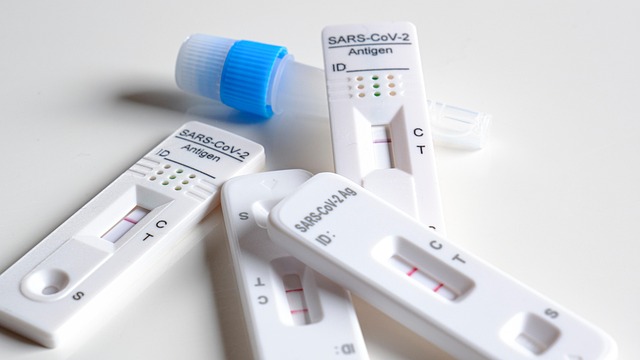In the UK, Kidney Blood Tests UK are crucial for monitoring kidney health and detecting early signs of issues like kidney disease. These tests measure creatinine and estimated glomerular filtration rate (eGFR) to assess kidney function. Abnormal results prompt intervention, preventing complications for at-risk individuals. Home kidney blood tests, popular in the UK, offer convenient monitoring, especially for those with high risk factors. Understanding home test results, with normal ranges for creatinine (below 120 μmol/L) and urea (4-16 mmol/L), is essential for proactive kidney care alongside professional guidance.
In today’s digital age, health monitoring at home has become more accessible than ever. One essential tool for individuals concerned about their kidney health is the kidney blood test. This article explores the significance of kidney blood tests in the UK, delving into different types available for home use and how to interpret results accurately. Understanding these simple yet powerful assessments can empower folks to take charge of their kidney function and overall well-being.
- Understanding Kidney Blood Tests: What to Expect and Why It Matters in the UK
- Types of Home Health Tests for Kidney Function and Benefits
- How to Interpret Results: Ensuring Accurate Self-Care with Kidney Blood Tests
Understanding Kidney Blood Tests: What to Expect and Why It Matters in the UK
In the UK, kidney blood tests are a vital tool for monitoring kidney health and detecting potential issues early on. These tests typically involve checking levels of creatinine and eGFR (estimated glomerular filtration rate) in the blood, which provide crucial insights into kidney function. During a Kidney Blood Test UK, a small sample of your blood is analysed to assess how well your kidneys are filtering waste products from your body. Creatinine levels indicate the concentration of this muscle waste product, while eGFR calculates the speed at which your kidneys are filtering waste.
Understanding these results is essential as abnormal levels can signal various kidney conditions, such as kidney disease or impairment. Regular monitoring through Kidney Blood Tests UK allows for prompt intervention and management, potentially preventing further complications. Health professionals often recommend these tests as part of routine check-ups, especially for individuals with risk factors like high blood pressure, diabetes, or a family history of kidney problems.
Types of Home Health Tests for Kidney Function and Benefits
Home health tests have become increasingly popular for individuals looking to monitor their well-being, and one area of growing interest is kidney function assessment. Kidney blood tests offer a convenient way for people in the UK to check their renal health from the comfort of their own homes. These tests typically measure various blood markers, such as creatinine and urea levels, which are vital indicators of kidney function.
By conducting regular kidney blood tests at home, individuals can early detect any abnormalities or potential issues with their kidneys. This is particularly beneficial for those at risk of kidney disease due to age, genetics, or underlying health conditions. The results provide valuable insights into kidney health, allowing people to take proactive measures, such as adjusting diet and lifestyle, and seeking further medical advice if necessary.
How to Interpret Results: Ensuring Accurate Self-Care with Kidney Blood Tests
When conducting a kidney blood test at home, understanding how to interpret results is vital for ensuring accurate self-care. In the UK, these tests often look for key markers such as creatinine and urea levels, which indicate kidney function. Normal ranges can vary slightly between different labs, but generally, creatinine levels below 120 μmol/L (for men) or 100 μmol/L (for women) suggest healthy kidneys. Urea levels should typically fall within the range of 4-16 mmol/L. Deviations from these norms may signal potential kidney issues, but it’s crucial to consult a healthcare professional for context and interpretation.
Accurate self-care depends on consistent testing and knowledge of what constitutes a normal, healthy range for your specific circumstances. Always follow the instructions provided with your at-home test kit precisely to ensure valid results. If you have underlying health conditions or are taking medications, discuss these factors with your doctor as they can influence kidney blood test outcomes. Regular monitoring, combined with professional guidance, empowers individuals in the UK to proactively manage their kidney health.
Kidney health is an essential aspect of overall well-being, and home health tests offer a convenient way for individuals in the UK to monitor their kidney function. By understanding kidney blood tests and their interpretations, folks can take proactive steps towards self-care and catch potential issues early on. With various at-home testing kits available, it’s now easier than ever to stay informed about your kidney health without stepping into a clinic. Remember, regular monitoring is key to maintaining optimal kidney function.
